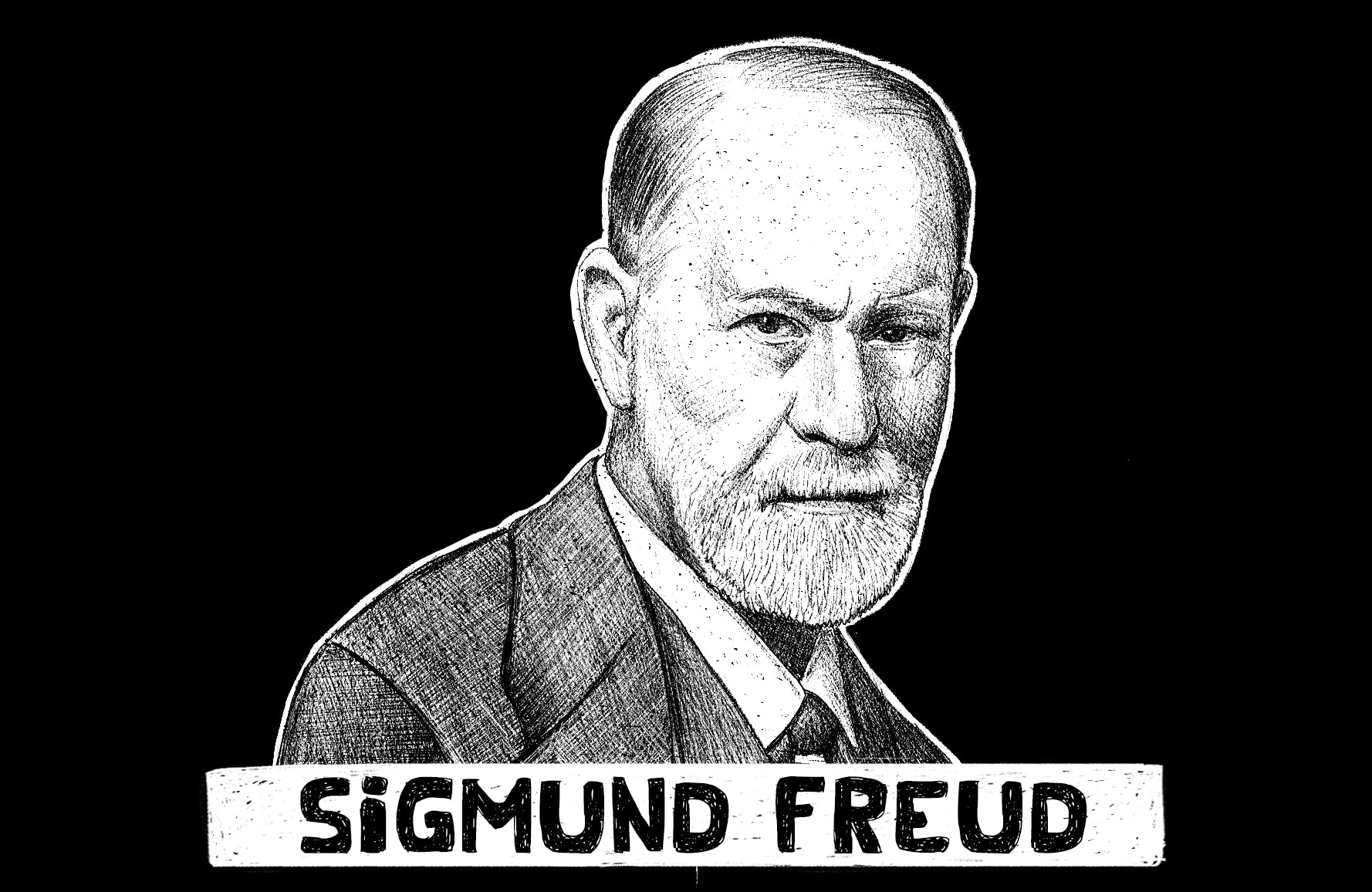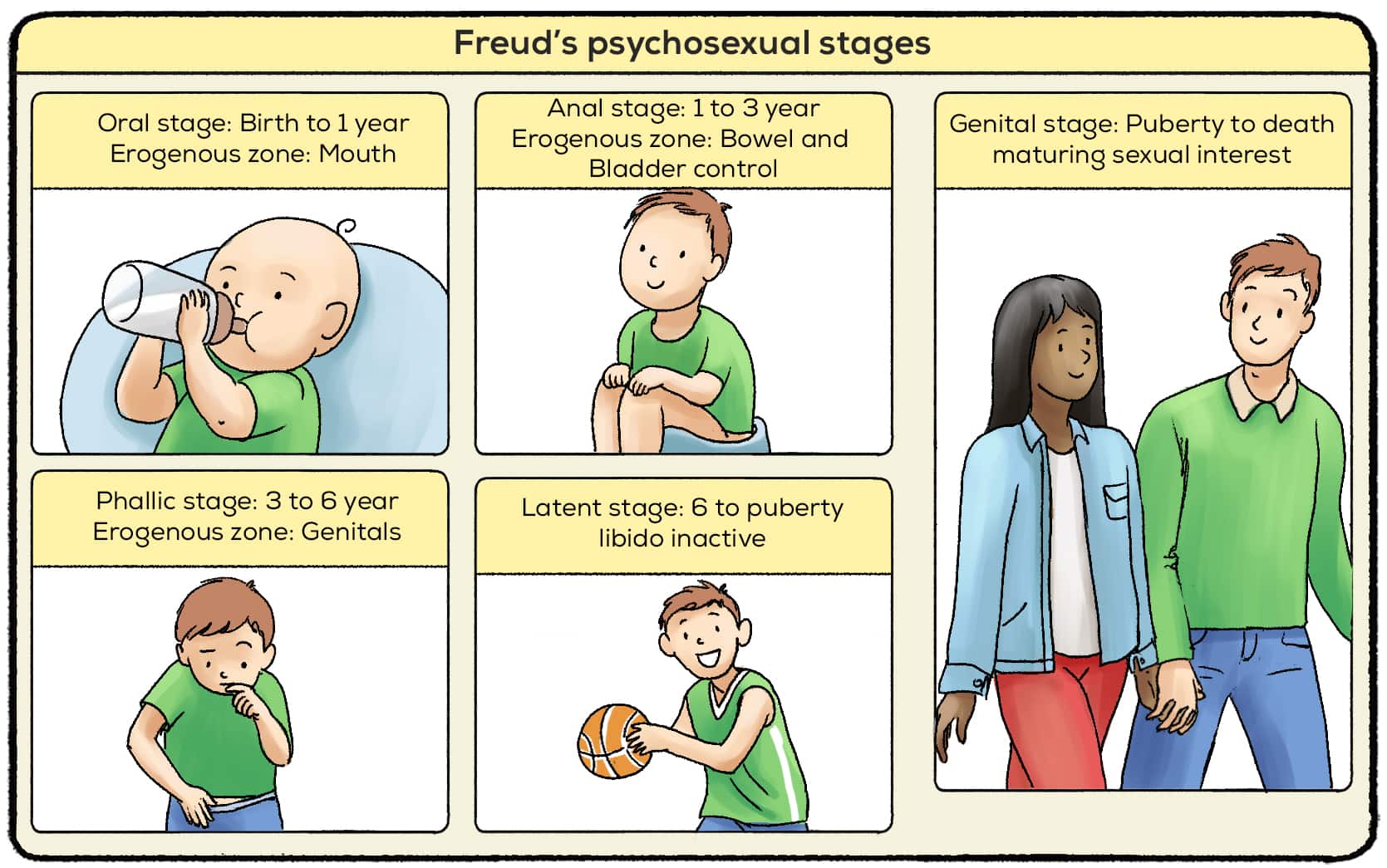Hey guys. How much do you love your mother? Really though - how much?
If I’ve made you a little uncomfortable with that question, get ready for a cringey ride. I’m going to explain one of the most well-known, and most uncomfortable, theories in psychology. This theory greatly attributed to the success and fame of Sigmund Freud, but it also suggests that as a young boy, you had more than just a crush on your mom.
Buckle up. It’s time to talk about the Oedipal Complex.
What Is the Oedipal Complex?
The Oedipal Complex, or Oedipus Complex, is a theory whose name comes from the Greek play Oedipus Rex by Sophocles. As a young boy develops this complex, he begins to lust after his mother. If the complex is not resolved, the boy will grow up and likely have relationship problems.
Why Is It Called the Oedipal Complex?
In Oedipus Rex, Oedipus is a king that receives a disturbing fate. He is told that he is destined to marry his mother and kill his father. Devastated, he leaves his family, not knowing that they are his adopted family. Throughout his journey, he kills his biological father and marries his mother, not knowing who either of them are. Upon learning what he has done, Oedipus blinds himself and goes to live the rest of his life in exile.
Let’s fast forward from Ancient Greece to the early 20th century.
Who Coined the Term Oedipal Complex?

Sigmund Freud named quite a few of his theories after plays and gods in Ancient Greece. He believed that the unconscious contained a sex instinct and a death instinct, named after Greek gods Eros and Thanatos. These instincts ruled a lot of behaviors performed both as a child and later on in life as an adult. Throughout a child’s development, however, they ideally develop an ego and superego that help them control their desires and live as a productive citizen of society.
If development is stunted or issues remain unresolved, the adult may develop different disorders or fixations, preventing them from behaving properly.
Freud’s Psychosexual Stages of Development
Freud laid out the stages of psychosexual development in the early 19th century. These stages include the oral, anal, and phallic stages. At each stage, a child becomes more aware of their own body and their place in the world.

The Phallic Stage
The phallic stage, between the ages of 3 and 6, is where the Oedipus Complex comes in.
At this stage of a child’s development, they are beginning to learn that they are separate from others. This autonomy has advantages, but also begins a time in which the mother is beginning to separate herself from the child. No longer is she tending to the child’s every need through breastfeeding or other means.
Freud believed that, at this stage, the child begins to lust after the mother. In the phallic stage, the erogenous zone moves to the genitals. A child may not understand how they want to be satisfied by their mother, but they at least understand that they crave satisfaction from the mother.
This craving is not usually satisfied. After all, the child sees that the mother has desires of her own. Instead of being sexually satisfied by the child, the mother is sexually satisfied by the child’s father. The child becomes extremely jealous and angry at the father. They see the father as the root of all dissatisfaction. Freud suggested that the child’s instincts are to kill and replace the father.
This crisis is just as much about control and power as it is about sex and physical desires. It’s certainly uncomfortable to think that Freud suggested that young boys want to have sex with their mother. Think of it as a desire to control the mother’s attention and gain satisfaction in that way.
How To Resolve the Oedipal Complex
During the phallic stage of development, the child must identify these feelings and repress them. The superego, or the part of the personality that wants to adhere to the morals and values of society, is crucial in this repression. After all, society doesn’t encourage having sex with your mother and killing your father.
What Happens If the Oedipal Complex Is Not Resolved?
If the complex is resolved and the child moves onto other stages of development, they will have healthy sexual relationships as an adult. If the complex is not resolved, problems will arise. A boy with an unresolved Oedipus complex will become an adult with an Oedipus complex. He may experience anger toward other boys, those that resemble the father. Adults with Oedipal complexes may not have healthy sexual relationships. Only with psychoanalysis, suggested Freud, could the child overcome these unresolved issues and move on with their life.
This is a Significant - And Ongoing - Crisis.
Although Freud developed stages of psychosexual development, the Oedipal Complex rarely (if ever) begins and is completed in a span of three, neat years. In 1917, Freud said “These tasks are set to everyone. And it is remarkable how seldom they are dealt with in an ideal manner.”
It’s certainly not easy for a child to accept their lust for one parent and despise for another. A child doesn’t even know what they want. They don’t know what sex is. They barely know about their own genitalia.
Freud believed that the Oedipal Complex was about more than just sexuality or parent-child relationships. He believed that this time also allowed a child to explore and discover their gender identity. That’s a lot for a child to learn!
Example of The Oedipal Complex
A Reddit user referenced the Oedipal Complex on the Succession subreddit:
"Shiv really gave it to Roman about having an Oedipal complex...
![]() What happened in the past to make her say this stuff?
What happened in the past to make her say this stuff?
...is it true?"
If you watch Succession, you would know that Roman does exhibit some behaviors that fall in line with the Oedipus complex.
This isn't the only time a person has caught wind of Greek and Roman mythology references in the HBO show. This Vulture article discusses further how the story of Oedipus is just one of many ways that the writers have put together the story of Succession. I
What About Girls?
The Oedipus Complex was developed and accepted in the early 1900s. We’ve learned a lot since then about gender identity, sexuality, and gender roles. We still have a lot more to learn. What we do know, however, is that the Oedipus Complex leaves much to be desired in terms of explaining gender, sexuality, and other issues within childhood development.
Freud believed that boys developed an Oedipal complex. What about girls? Female infants and children also experience the same type of closeness that male children experience with their mothers. How do they navigate relationships with their parents? What about boys that grow up to be gay?
Freud addressed it as a "feminine Oedipal complex" or "negative Oedipal complex," but didn't write as much about women being attracted to their fathers. Instead, Freud believed that while boys developed the Oedipal Complex, girls developed penis envy. Essentially, this means that all girls unconsciously developed anxiety when they realized they did not have a penis. Anxiety disorders and other neuroses, Freud believed, could be traced back to penis envy.
Electra Complex
Some colleagues of Freud tried to explore the "feminine Oedipal complex" further than Freud. Carl Jung first introduced the term "Electra Complex" in 1913 as the "Oedipus Complex" for girls. Jung also suggested that during the ages 3-6, girls developed an attraction toward their fathers and felt competition with their mothers.
Electra's story in Greek mythology doesn't explain the Electra Complex as well as Oedipus's does. Electra is a Greek tragedy about Electra and her brother Orestes. Both siblings want to kill their mother, but they also plot to kill their stepfather Aegisthus. Electra's mother and Aegisthus got together while Electra's father was at war. (Aegisthus and Electra's father are also cousins.)
Nothing about the Electra Complex ever really stuck like the Oedipal Complex. Even Freud himself denounced the Electra Complex. Although the Electra Complex attempted to answer questions about a young girl’s development, many other questions were left unanswered.
Do Psychologists Still Consider the Oedipal Complex Today?
People may joke about characters on TV experiencing the Oedipal Complex, but it's not something that most therapists take seriously. Don't worry about walking into a therapist's office and leaving with a diagnosis that you're in love with your mother. Early relationships with parents can have an impact on adult relationships, but not in graphic terms like the Oedipal Complex.
About Attachment Theory
One theory in psychology that has stood the test of time is attachment theory. Psychologists John Bowlby and Mary Ainsworth conducted studies with children, their parents, and strangers to identify different attachment styles. Children develop these attachment styles based on how their parents care for them. A neglectful parent may raise a child with an avoidant attachment style. Parents that meet their child's needs and offer them love will likely raise a child with a secure attachment style.
This theory still suggests that relationships with parents and adult relationships are closely connected, but in a much more palatable way than the Oedipal Complex. You don't experience anxiety because of penis envy or an attraction to your mother - you may have just learned poor relationship habits from the first person you ever met in your life.
Attachment theory is still largely discussed and accepted in psychology today. If you go to a therapist's office with concerns about how you handle adult, romantic relationships, they may talk further about attachment theory. By uncovering the ways that your parents may have led you astray, you can correct the way you approach relationships and enjoy more secure, successful ones.
Why Have Psychologists Rejected Freud's Ideas?
Most of Freud's theories have been rejected by the larger scientific community. There are a few reasons for this:
- They're just a little weird. Even close colleagues of Freud, like Carl Jung, felt uncomfortable with Freud's focus on sexuality in small children.
- Freud's theories fail to consider same-sex attraction (and largely fail to consider female sexuality.)
- Freud’s theories were not developed from research studies or data. And if you want to tell patients that their problems are coming from an unresolved desire to have sex with their parents, you probably need some hard data to back that up.
So why do we still talk about them? At the time, Freud's theories made a huge impact on psychology. They still do today! Talk therapy as we know it today largely came from Freud's use of psychotherapy. And it's hard to talk about Freud without talking about ideas like the Oedipal complex. This theory, along with the Psychosexual Stages of Development and other ideas within the psychodynamic theory, seriously shaped the world of psychology forever.
